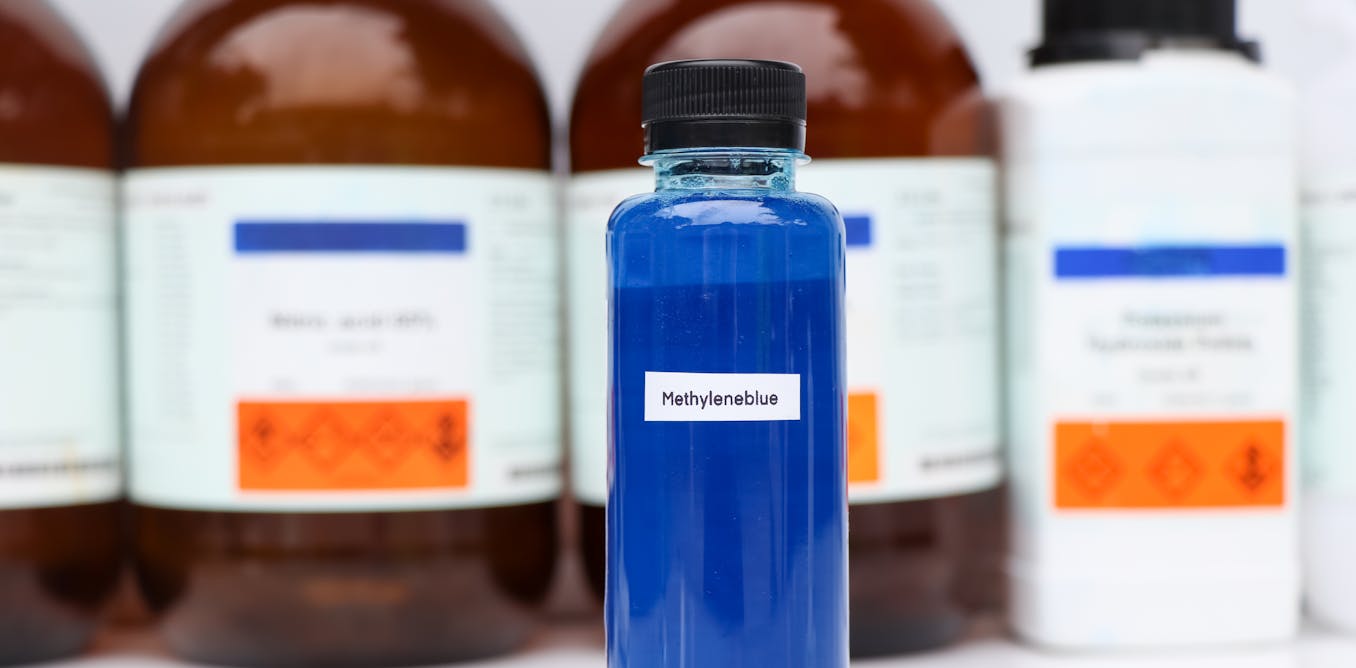DOMINO’S has issued an urgent warning over a popular product and urged shoppers to “throw it out”.
The popular pizza chain revealed a mistake had been made with its Garlic and Herb and Honey and Mustard dips.
1
The pizzeria confirmed that the two sauces may contain traces of peanuts.
Both the 100g “Big Dip” pots and the 25g pots provided with pizzas are said to be affected.
Domino’s has urged those with a peanut allergy to dispose of the sauces and avoid consuming them.
The fast-food chain has apologised for any concern this may cause and recommended that customers with queries visit their contact form here.
A Domino’s spokesman said: “At Domino’s Pizza, the quality of our products and the safety of our customers is the highest priority, particularly when it comes to allergens.
“We have become aware that some of our Garlic & Herb and Honey & Mustard dip may contain traces of peanut.
“This issue may impact both our 100g ‘Big Dip’ pots and the smaller, 25g, pots we provide with our pizzas.
“If you DO HAVE A PEANUT ALLERGY, please dispose of the dips and do not consume them.
“If you DO NOT have a peanut allergy, no further action is required.”
The pizza chain offers a full allergy breakdown on its site and prides itself on its “transparent nutritional information”.
It comes after Domino’s introduced its new travel-friendly version of the Garlic and Herb dip – so holidaymakers don’t have to miss their home comforts when abroad.
The 100ml condiment fits perfectly in airport-regulated liquid bags, so travellers can take it through customs without a hitch.
But you’ll have to be quick, as only a very limited number are available via www.garlicandherbtrip.co.uk.
Melanie Howe, spokesperson for Domino’s, said: “With the 100ml liquid travel restriction set to last a little longer, it’s only right holidaymakers can still enjoy their trip abroad without having to make any sacrifices.
“We know home comforts are important for a lot of travellers, so this summer we are swapping a dip in the pool for a dip BY the pool.”
The popular fast-food restaurant wasn’t the only major chain to issue a warning to customers.
What is a penaut allergy
It’s one of the most common causes of a life-threatening allergic reaction to food.
Peanut allergy is a condition that causes the body’s germ-fighting immune system to react to peanuts. This life-threatening reaction is known as anaphylaxis.
Symptoms – An allergic response to peanuts usually occurs within minutes after exposure. Peanut allergy signs and symptoms can include:
- Skin reactions, such as hives, redness or swelling
- Itching or tingling in or around the mouth and throat
- Digestive problems, such as diarrhoea, stomach cramps, nausea or vomiting
- Tightening of the throat
- Shortness of breath or wheezing
- Runny nose
Anaphylaxis: A life-threatening reaction – Peanut allergy is the most common cause of anaphylaxis due to food.
Anaphylaxis signs and symptoms can include:
- Constriction of airways
- Swelling of the lips, tongue and throat makes it hard to breathe
- A severe drop in blood pressure, also known as shock.
- Rapid pulse
- Dizziness, lightheadedness or loss of consciousness
When to see a doctor – Talk to your care team if you have had any signs or symptoms of peanut allergy.
- Severe dizziness
- Severe trouble breathing
- Loss of consciousness
Source: Mayo Clinic
Iceland pulled an own brand item off the shelves as it may contain milk which is not on the label.
The supermarket’s pack of two Vegetable Balti Bakes have been urgently recalled over the allergy risk.
The affected products are dated Best Before 09/07/26, July 9, 2026, and are the 280g packs.
A statement on food.gov.uk read: “Iceland Foods Ltd is recalling Iceland 2 Vegetable Balti Bakes because it may contain milk which is not mentioned on the label.
“This means the product is a possible health risk for anyone with an allergy or intolerance to milk or milk constituents.”
Iceland shoppers have been advised by the store to check if they’ve bought the affected item.
“If you have purchased any of the above product, DO NOT eat,” warned the supermarket.
“Please return to any Iceland store where a full refund will be given. No receipt is required.”
A spokesperson said: “We are taking the precautionary measure of recalling this date code of the above product because it may contain undeclared milk and therefore poses a potential risk to people that have an allergy or intolerance to milk.
“Only the Best Before date listed in this notice is affected.”
Similarly, an urgent recall has been issued for Aldi soups that contain peanuts as shoppers are urged to check their cupboards.
The recall affects Aldi’s Soupreme Creamy Chicken Soup (600g, Best Before 01 October 2024) and Specially Selected Pea and Ham Hock Soup (600g, Best Before 28 September 2024).
Both products might contain peanuts that aren’t mentioned on the label, posing a serious risk to anyone with a peanut allergy.
The Food Standards Agency (FSA) has sounded the alarm, highlighting that these soups may contain undeclared peanuts, which could cause a severe allergic reaction in anyone allergic to peanuts.
Aldi has wasted no time, pulling the products from its shelves and issuing a recall notice to all customers.
WHAT TO DO
If you’ve recently purchased either of these soups and have a peanut allergy, the advice is clear: Do not eat them.
Instead, return them to the store for a full refund – no receipt required.
Concerned customers can find more information on Aldi’s website at help.aldi.co.uk.
To keep customers safe, Aldi has placed notices in all affected stores explaining why the recall has been issued and outlining steps for anyone who may have purchased the affected soups.
If you have any questions or need further details, check out the Customer Notice that’s been put out by Aldi and the FSA.
You can view it online or in-store to make sure you’re not at risk.
Food recalls like these happen when there is a mistake or an issue that could put customers at risk, especially when it comes to incorrect or missing allergen labelling.
The FSA keeps a close watch and will issue allergy alerts whenever necessary.
An estimated two million people in the UK live with some kind of food allergy.
The most common is believed to be egg white, followed by wheat, green beans, rye and almonds.
Deaths from serious reactions due to food have declined over the past 20 years, an analysis of UK NHS data in 2021 found.
Allergies can be a serious health risk to those who suffer from them.
The signs of an allergic reaction and anaphylaxis
SYMPTOMS of an allergy usually occur within minutes of contact with with the offending food or trigger, but they can also come on up to one hour later.
Most allergic reactions are mild but they can also be moderate or severe.
Anaphylaxis is the most severe form of allergic reaction which can be life threatening.
Mild to moderate symptoms include:
- Itchy mouth, tongue and throat
- Swelling of lips, around the eyes or face
- Red raised itchy rash (often called nettle rash, hives or urticaria)
- Vomiting, nausea, abdominal pain and diarrhoea
- Runny nose and sneezing
Severe symptoms of anaphylaxis include:
- Swelling of your throat and tongue
- Difficulty breathing or breathing very fast
- Difficulty swallowing, tightness in your throat or a hoarse voice
- Wheezing, coughing or noisy breathing
- Feeling tired or confused
- Feeling faint, dizzy or fainting
- Skin that feels cold to the touch
- Blue, grey or pale skin, lips or tongue – if you have brown or black skin, this may be easier to see on the palms of your hands or soles of your feet
Anaphylaxis and its symptoms should be treated as a medical emergency.
Follow these steps if you think you or someone you’re with is having an anaphylactic reaction:
- Use an adrenaline auto-injector (such as an EpiPen) if you have one – instructions are included on the side of the injector.
- Call 999 for an ambulance and say that you think you’re having an anaphylactic reaction.
- Lie down – you can raise your legs, and if you’re struggling to breathe, raise your shoulders or sit up slowly (if you’re pregnant, lie on your left side).
- If you have been stung by an insect, try to remove the sting if it’s still in the skin.
- If your symptoms have not improved after 5 minutes, use a 2nd adrenaline auto-injector.
Do not stand or walk at any time, even if you feel better.
Sources: Allergy UK, NHS




